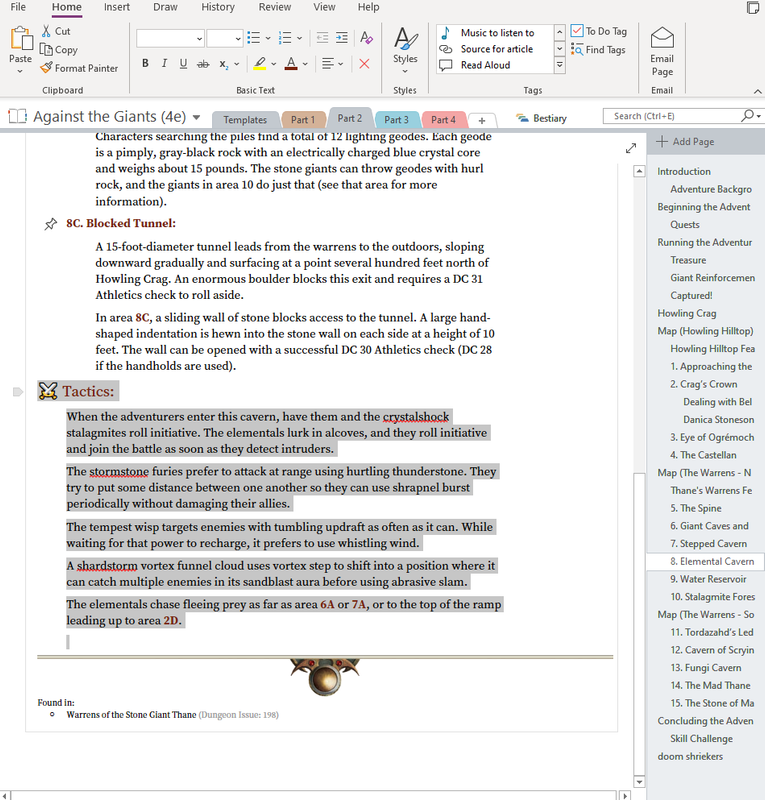Well, I can see from this excerpt that 4e does, in fact, include tactics:

So, yeah. It's a tactical game. And a roleplaying game. And whatever else you want it to be, just like every other edition before and after. (FYI, this module is an interpretation of a classic 1e adventure series (Against the Giants). It appeared as pdf in Dungeon magazine. I use OneNote to make it more readable so I can access during play better than with a pdf.)
But consider this:
Are any other editions of D&D considered "tactical" games? Because sometimes I played with grids and maps and tokens and minis during battles for every edition. But not always. I've enjoyed tactical sessions for years, regardless if the rules made it easy or not, but 4th Edition made it better. It just gave simpler, clear-cut rules and transparency to do so. I understand if it doesn't work for everyone else, but I make no apologies or excuses for enjoying something that
still works great for me today.









